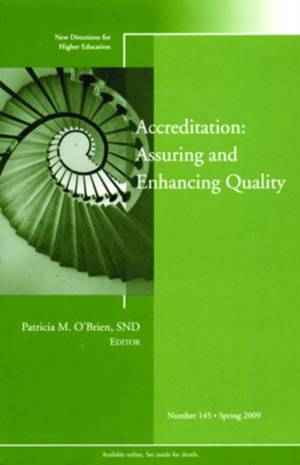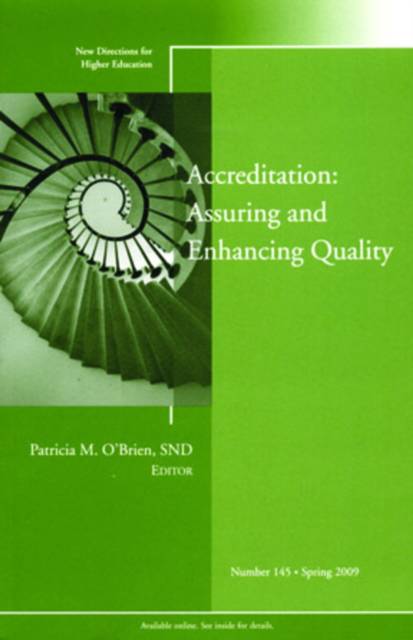
Bedankt voor het vertrouwen het afgelopen jaar! Om jou te bedanken bieden we GRATIS verzending (in België) aan op alles gedurende de hele maand januari.
- Afhalen na 1 uur in een winkel met voorraad
- In januari gratis thuislevering in België
- Ruim aanbod met 7 miljoen producten
Bedankt voor het vertrouwen het afgelopen jaar! Om jou te bedanken bieden we GRATIS verzending (in België) aan op alles gedurende de hele maand januari.
- Afhalen na 1 uur in een winkel met voorraad
- In januari gratis thuislevering in België
- Ruim aanbod met 7 miljoen producten
Zoeken
Accreditation: Assuring and Enhancing Quality
New Directions for Higher Education, Number 145
€ 30,95
+ 61 punten
Omschrijving
Accreditation has long been regarded as an effective mechanism through which to assure and improve the quality of higher education, and it has long been accepted as a fact of life for colleges and universities.
Specificaties
Betrokkenen
- Uitgeverij:
Inhoud
- Aantal bladzijden:
- 112
- Reeks:
Eigenschappen
- Productcode (EAN):
- 9780470489024
- Verschijningsdatum:
- 31/03/2009
- Uitvoering:
- Paperback
- Afmetingen:
- 150 mm x 226 mm
- Gewicht:
- 152 g

Alleen bij Standaard Boekhandel
+ 61 punten op je klantenkaart van Standaard Boekhandel
Beoordelingen
We publiceren alleen reviews die voldoen aan de voorwaarden voor reviews. Bekijk onze voorwaarden voor reviews.








